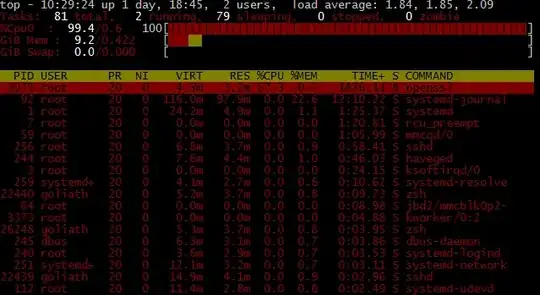I have a fresh install of Arch Linux on a RaspberryPi model B. I'm setting up OpenVPN and using easy-rsa to generate initial keys and certificates. All went fine until I ran ./build-dh. It is now 24 hours later and the script is still running.
I have previously configured OpenVPN on other devices and the same RaspberryPi, but under Raspbian. And I don't remember this command ever taking so long. Last time I used 2048 bit key and it took about an hour. Now I'm trying with a 4096 bit key and it's been more than a day.
Does anyone have any previous experience with this? How do I check if it's just not executing in a loop?
This is the script I'm using:
#!/bin/sh
# Build Diffie-Hellman parameters for the server side
# of an SSL/TLS connection.
if [ -d $KEY_DIR ] && [ $KEY_SIZE ]; then
$OPENSSL dhparam -out ${KEY_DIR}/dh${KEY_SIZE}.pem ${KEY_SIZE}
else
echo 'Please source the vars script first (i.e. "source ./vars")'
echo 'Make sure you have edited it to reflect your configuration.'
fi
Here is my top output, openssl is at ~67%:
Thanks.
Turns out it's a property of the algorithm to search for the so called strong primes and thus increases the computation requirements quite a bit. Solution came from my other ticket here.
